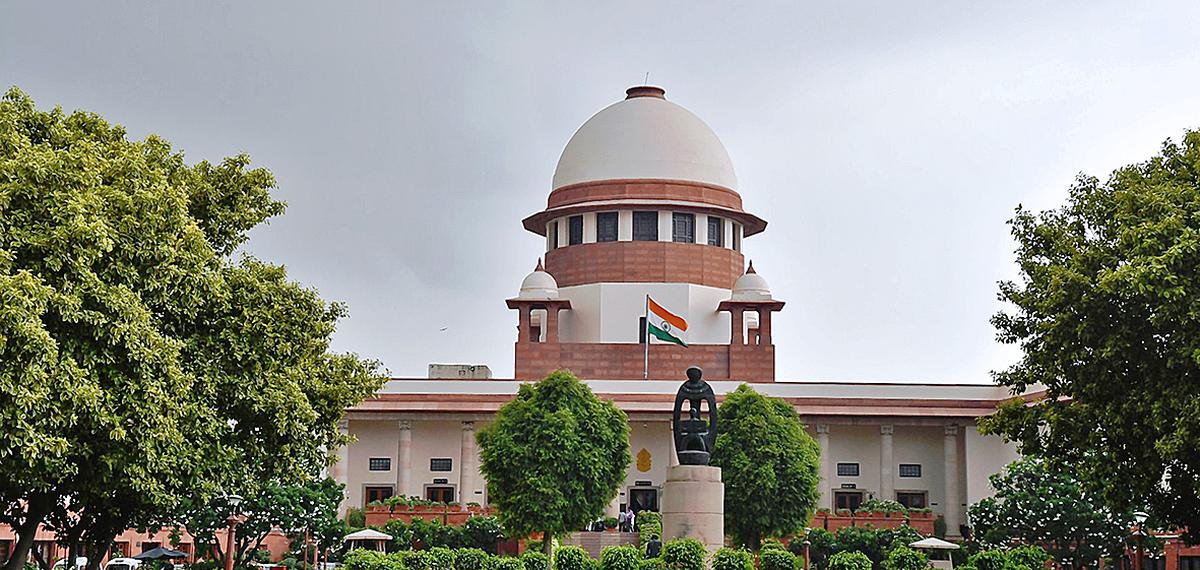NEW DELHI, Nov 16:
The Supreme Court today held Shubam Sangra, a key accused in the sensational gang-rape and murder of an eight-year-old nomadic girl in Kathua in 2018, was not a minor at the time of the offence and ordered his trial as an adult, observing “a casual or cavalier approach” by courts in such cases cannot be permitted.
The top court gave credence to the medical board’s report which estimated the age of the accused above 19 years at the time of commission of the crime and set aside the order passed by the Chief Judicial Magistrate of Kathua in Jammu and Kashmir and the High Court.
A bench of Justices Ajay Rastogi and J B Pardiwala said though there was a “clear and unambiguous case” in favour of the accused person’s juvenility on the basis of his birth certificate and school records, he cannot take shelter under such documents when a heinous crime has been committed.
It also chastised the CJM and the High Court over their “casual and cavalier” approach while deciding the accused was a juvenile when the crime was committed.
“…When an accused commits a heinous and grave crime like the one on hand and thereafter attempts to take the statutory shelter under the guise of being a minor, a casual or cavalier approach while recording as to whether an accused is a juvenile or not cannot be permitted as the courts are enjoined upon to perform their duties with the object of protecting the confidence of a common man in the institution entrusted with the administration of justice,” the court said.
Refusing to believe the birth certificate and school records which had established the juvenility of the accused, Justice Pardiwala, writing the 66-page judgement, said the medical reports cannot be brushed aside.
“It is held that the respondent accused was not a juvenile at the time of commission of the offence and should be tried the way other co-accused were tried in accordance with the law. Law to take its own course,” it said.
The judgement said the benefit of the principle of benevolent legislation attached to the Juvenile Justice Act would be extended to only such cases wherein the accused is held to be a juvenile on the basis of at least prima facie evidence inspiring confidence regarding his minority as the benefit of the possibilities of two views in regard to the age.
“The crime that the respondent accused herein has been charged with is heinous; its execution was vicious and cruel, by any stretch of imagination. The entire crime was calculated and ruthless. This case captured the attention and indignation of the society across the country, more particularly, in the State of J&K, as a cruel crime that raised alarm regarding safety within the community,” it said.
The alleged accused is involved in “grave and serious offence” which was executed in a “well-planned manner” reflecting his maturity of mind, the court said.
It said, “The plea of juvenility is more in the nature of a shield to dodge or dupe the arms of law, and cannot be allowed to come to his rescue.”
The bench, however, clarified the guilt or innocence of the respondent accused shall be determined strictly on the basis of the evidence that may be led by the prosecution and the defence at the time of the trial. “All observations made in this judgment are meant only for the purpose of deciding the issue of juvenility,” it said.
The bench referred to a provision of the J&K Juvenile Justice (Care and Protection of Children) Act and the rules for juvenility and said the medical evidence cannot be brushed aside.
“There is no good reason why we should overlook or ignore or doubt the credibility of the final opinion given by a team of five qualified doctors, one from the Department of Physiology, one from the Department of Anatomy, one from the Department of Oral Diagnosis, one from the Department of Forensic Medicine and one from the Department of Radio Diagnosis, all saying in one word that on the basis of the physical, dental and radiological examination, the approximate age of the respondent could be fixed between 19 and 23 years,” it said.
The minor girl was kidnapped on January 10, 2018 and was raped in captivity in a small village temple after keeping her sedated for four days. She was later bludgeoned to death.
Trending Now
E-Paper


